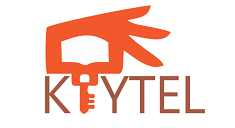Introduction
What would you say is the most crucial factor to consider if you were to make a real estate investment? Though the location is always vital, there are many other factors to consider when determining an investment’s profitability. Here is a list of some of the most important things to consider if you’re investing in the real estate market.
Property Location
Importance
As has always been the case, the most critical factor in deciding whether or not an investment will provide a return is its location. Some of the essential aspects that determine the value of a home are its location about amenities, the quality of those amenities, the existence of green space and scenic views, and the general reputation of the neighbourhood. Commercial property Real Estate is worth more in areas close to facilities like marketplaces, warehouses, transportation hubs, roads, and tax-exempt zones.
Where to Find It
A mid-to-long-term outlook on the expected changes in the neighbourhood throughout the investment period is crucial when determining where to purchase the property. For instance, a residential building’s value would suffer if the quiet open area at the back was transformed into a noisy industrial complex. Investigate the adjacent locations in which you are interested in investing thoroughly, paying particular attention to their arrangements and planned activities.
One way to learn about the future of the area around the property you’re considering buying is to get in touch with the local government office responsible for zoning and urban planning. By having access to the area’s long-term plan, you can determine whether or not your vision for the land will be beneficial.
The Property’s Value
Importance
Property valuation is essential for a variety of reasons, including getting a mortgage, setting a selling price, analysing investment possibilities, determining insurance premiums, and figuring out yearly tax obligations.
Where to Find It
Property valuations often use the following approaches:
- The most often used and valuable way for comparing the selling prices of new and old homes is the use of recent sales of properties with similar qualities.
- The cost approach is relevant in the case of new construction since it factors in the total cost of the land and the building minus any applicable depreciation.
- Predicted cash inflows form the basis of the income strategy, which is helpful for rental properties.
The Reason for Investing and the Time Frame for Investment
Importance
Real estate investments have significant value and limited liquidity, so if the motivation behind the purchase is unclear, it might have unintended consequences like financial strain, mainly if the property is mortgaged, especially if the reason for the exchange isn’t evident.
Where to Find It
Pick one of these broad classes that best describes your objectives, then build your strategy around it:
- Buy to use it oneself. Here, you may avoid paying rent while reaping self-use rewards and seeing your investment grow in value.
- You are buying to lease it out. This increases the value over time and guarantees a steady stream of revenue. However, the temperament needed to be a landlord is essential to handle tenant issues and legal matters, oversee repairs, and more.
- Commercial Property Buying and Selling (short-term). Typically, this is done on a property still in the development phase but will provide a profit of several hundred to several thousand dollars once completed.
Projected Revenue and Possible Returns
Importance
After all, payments have been paid; the remaining cash flow is the amount of money that may be used. Achieving a reasonable rate of return on investment requires having a property that produces positive cash flow.
Where to Find It
Make projections for the following areas of revenue and expenditures:
- Rental income projections for cash flow (inflation favours landlords for rental income)
- The asset’s actual value is expected to grow in tandem with its price over the long run.
- Cost savings from depreciation (and available tax benefits)
- It’s wise to weigh home improvements’ potential return on investment before committing to them.
- Analysing the pros and cons of mortgage loans in light of price increases
Watch Your Use of Leverage
Importance
Money borrowed may come in sound, but it may cost you a lot. Although the cost of interest will be stretched over the years, you are still surrendering your future income to have practicality right now. Make sure you know what you’re doing when handling loans like these and staying away from “over-leveraged” debt levels. Even seasoned real estate professionals struggle in imperfect markets because of too much leverage.
Where to Find It
Consider the following in light of your current financial situation and your expected future earnings:
- Choose the mortgage that best fits your needs, whether it be a fixed-rate, ARM, interest-only, no-down payment, or another mortgage. Do not forget that there are risks associated with each mortgage you choose. Interest rates on ARMs, for instance, may change at any time in response to shifts in the financial markets, and borrowers are expected to be flexible throughout the life of the loan.
- Learn everything about the mortgage lender’s terms, restrictions, and extra charges.
- Get the best deal possible by looking around at other financial institutions.
Comparison of Preexisting Buildings to New Ones
Importance
Buyers may put their stamp on a brand-new house while still benefitting from lower prices and cutting-edge amenities. Unknowns, such as how long it will take to build the community and how much it will cost, as well as any delays in doing so, pose a risk.
There are several financial and practical advantages to purchasing an already established property, including decreased costs, less hassle, and expedited construction.
Where to Find It
Essential things to think about while deciding whether to purchase a newly constructed home or an existing one are as follows:
- Before making a new financial commitment, it’s wise to look into the track record of the construction firm in question and the quality of their prior work.
- Check out the current surveys and value reports for the existing properties in addition to the property documents.
- Calculate the cost of owning a home, including the mortgage payment and any late fines, HOA dues, and taxes. Such costs might significantly impact your ability to make ends meet.




